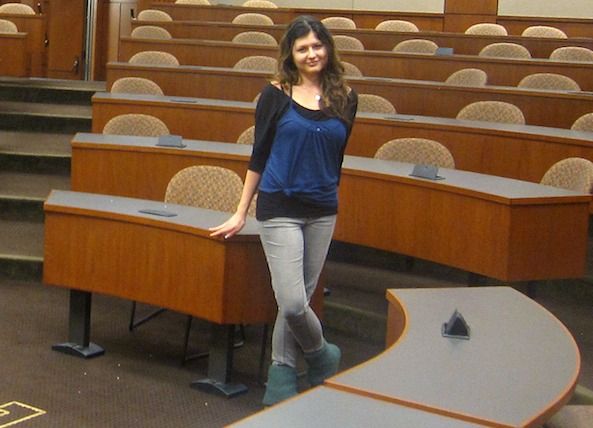
5 Ways Chess Can Boost Your Resumé
Working on your chess doesn’t have to translate to results solely over the board.
Experience in chess can go a long way in applications, university personal statements, and job interviews.
However, you have to highlight the right skills. Employers don’t care about how deeply you know the Najdorf Sicilian.
To hiring managers, the difference between master and grandmaster on a resumé is also negligible. It is no replacement for top grades and test scores.
That said, chess can be the “plus factor” that sets you apart from the field.

From my experience applying to top schools and the most selective corporate law firms, here's how to present five universal skills to boost your resume or job application.
1. Critical Thinking

This skill is perhaps present on every chess player's LinkedIn profile, but there is a good reason for it. Thinking critically involves thinking analytically through either logic, analogy, or informed assumptions.
Chess reinforces critical thinking at every stage of the game: calculating tactics, evaluating long variations, and coping with a new situation when your opponent plays a novelty.
2. Problem-Solving

I don’t mean merely solving tactical problems. Chess is chock-full of more profound dilemmas. Everything from figuring out piece placement, exploiting weaknesses, and converting advantages involves problem-solving.
This skill is especially relevant for consulting and legal jobs.
3. Decision-Making

Decision-making is related to problem-solving, but is more subtle. It is also one of the overlooked skills gained from chess experience. It arises when deciding between variations. There are endless tree branches of variations in a regular position.
A human chess player must use a combination of pattern-recognition and understanding to decide on the best course of play. It’s insufficient to see several moves ahead, as most non-chess players would conceive of the game. A good chess player can quickly decide which move to play among the lines he or she calculated.
Highlight this skill when applying to jobs that hinge on accurate decisions such as policy-making, or that require thinking on your feet quickly, as in trading.
4. Time Management

Anyone who’s fallen in time trouble (i.e. all chess players), knows the importance of managing time throughout the game. One thing that separates maters from amateurs is the ability to calculate and make decisions quickly.
Even weaker players would be able to brute force their way through a variation if given enough time. To successfully manage time, a player must identify which moments require less thinking -- such as a known opening line -- in order to preserve time for the critical moments.
You’d be hard-pressed to find a job that doesn’t require meeting deadlines. Bringing up time management can also pave the way into discussing a unique aspect of chess.
5. Cross-Cultural Competency

Think outside the box when it comes to chess skills. If you’ve participated in tournaments, you’ve most likely traveled. If you were competitive on the national level, then you were probably fortunate enough to travel internationally for either world youth or major international Swisses.
Experiencing various cultures is a big asset to the increasingly global marketplace.
Use the fact that tournaments take place in little-known cities to your advantage: you weren’t merely a tourist in Istanbul or Athens, but witnessed the true culture of the country in Antalya and Heraklion.
My personal statement to the UPenn Law School recounted the story of how a dispute on the Georgia-Turkey border while the U.S. team was en route to the 2006 World Youths in Batumi sparked a moment of panic as to whether U.S., Georgian, or Turkish law would apply to the situation.
This is a great point to raise in university admissions essays, which always prize “diversity.” Diversity in the collegiate context also includes international experience.
If you also speak a foreign language, then you can use this to package yourself as a qualified candidate to global firms or international relations positions.
I’ve seen everyone from “experts,” “youngest national middle-school chess champions,” and “state blitz chess champions,” with minimal chess accolades get away with padding their resumés.
The goal is to get chess to become a talking point in your application or interview.
From experience, that will be the main focus of the interviewer, who is tired of discussing the usual bland issues with other candidates. Once you have the chance to raise chess, make sure to present it the right way.
What are some other chess skills that could apply to your resume or application? Let us know in the comments or on Facebook.
GET THE MOST OUT OF CHESS.COM
- Check out the 11 worst chessboard photos.
- Watch IM Daniel Rensch take on GM Alejandro Ramirez in a hilarious giant-piece bullet game.
- Watch GM Josh Friedel's video on how to manage time pressure.
- Check out some of our fun video lectures: IM Rensch and GM Finegold are two of our most popular authors.
- Have fun and learn at the same time with the Tactics Trainer.
- Looking for articles with deeper analysis? Try our magazine: The Master's Bulletin.






